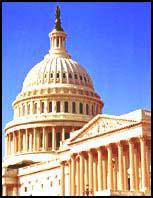Roger Williams

Roger Williams was born in London, England in 1604. After being educated at Charterhouse School and Pembroke College, Cambridge, Williams was ordained as an Anglican priest.
He gradually became an extreme Puritan and in 1631 joined the English colony led by John Winthrop in Massachusetts Bay. Williams objected to the royal charter of Massachusetts because it contained a lie when it claimed that England first discovered the region. Williams argued that the king had no right to grant the land to the settlers and that it should be purchased from the Native Americans. Although John Winthrop accepted the truth of this argument, he feared that if the king heard about what Williams was saying he might take back control of the colony and bring an end to this Puritan republic. Winthrop therefore decided to banish Williams from the colony.
Williams and his followers moved to Rhode Island where they purchased land from the Narragansett Indians at Providence. Williams established a democratic society and a haven of religious toleration and admitted Jews and Quakers into the colony. Anne Hutchinson, who had been banished by John Winthrop from the Massachusetts colony, also joined Williams on Rhode Island.
Williams, who was president of the Rode Island colony until 1658, wrote several books including Key to the Language of America (1643), The Bloody Persecution for Cause of Conscience (1644), Christenings Make Not Christians (1645) and George Fox Digged Out of his Burrows (1676). Roger Williams died in 1683.
Primary Sources
(1) William Bradford, History of the Plymouth Plantation (1651)
Roger Williams, a man godly and zealous, having many precious parts but very unsettled in judgment, came over first to the Massachusetts; but upon some discontent left that place and came hither, where he was friendly entertained according to their poor ability, and exercised his gifts among them and after some time was admitted a member of the church; and his teaching well approved, for the benefit whereof I still bless God and am thankful to him even for his sharpest admonitions and reproofs so far as they agreed with truth.
He began to fall into some strange opinions, and from opinion to practice, which caused some controversy between the church and him. He moved to the church of Salem but soon fell into more things there. He is to be pitied and prayed for; and so I shall leave the matter and desire the Lord to show him his errors and reduce him into the way of truth.
